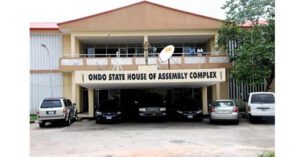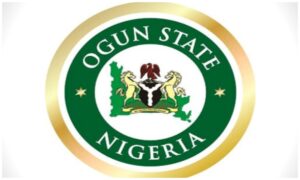
Betta Edu’s suspension and calls for stiffer security architecture on public funds
The urgent approach by President Bola Tinubu’s Administration on suspending the Minister of Humanitarian and Poverty Alleviation, Dr. Betta Edu will send a signal to other political appointees that Mr. President is up and doing who will not tolerate any action and inaction that is against the laws.
The statement suspending the Minister captured that in line with his avowed commitment to uphold the highest standards of integrity, transparency, and accountability in the management of the commonwealth of Nigerians, President Tinubu has suspended the Minister of Humanitarian Affairs and Poverty Alleviation, Dr. Betta Edu, from office with immediate effect.
The President further directed the Executive Chairman of the Economic and Financial Crimes Commission (EFCC) to conduct a thorough investigation into all aspects of the financial transactions involving the Federal Ministry of Humanitarian Affairs and Poverty Alleviation, as well as one or more agencies there under.
The suspended Minister was directed to hand over to the Permanent Secretary of the Federal Ministry of Humanitarian Affairs and Poverty Alleviation, and further directed by the President to fully cooperate with the investigating authorities as they conduct their investigation.
Furthermore, the President has tasked a panel that is headed by the Coordinating Minister of the Economy and Minister of Finance to, among other functions, conduct a comprehensive diagnostic on the financial architecture and framework of the social investment programmes with a view to conclusively reforming the relevant institutions and programmes in a determined bid to eliminate all institutional frailties for the exclusive benefit of disadvantaged households and win back lost public confidence in the initiative.
A statement by the Special Adviser to the President on Media and Publicity, Ajuri Ngelale said the directives of the President take immediate effect.
The Economic and Financial Crimes Commission (EFCC) has also on their part invited the Minister of Humanitarian Affairs and Poverty Alleviation, Betta Edu, to its headquarters located in Jabi area of the Federal Capital Territory, Abuja for questioning over the scandal
The invitation came less than 30 minutes after the President, Bola Tinubu announced Edu’s immediate suspension from office Through his Special Adviser to the President on Media and Publicity, Ajuri Ngelale.
An operative of the EFCC, who confirmed the development to our correspondent, said the anti-graft agency had earlier recommended the immediate suspension of the Minister in order to pave the way for the ongoing investigation that was ordered by the president.
Mrs Edu has come under criticism from Nigerians for ordering the transfer of N585.2 million into the private bank account of a civil servant, who is the accountant in charge of grants for Vulnerable Nigerians.
Recall that Chapter Seven, Section 713 of Nigeria’s Financial Regulations 2009 states that “Personal money shall in no circumstances be paid into a government bank account, nor shall any public money be paid into a private account. Any officer who pays public money into a private account is deemed to have done so with fraudulent intention.”
Program Officer at the Centre for Democracy and Development, Mr. Abiodun Olakunle, in a recent article stated clearly that Nigeria already has a robust anti-corruption legal framework, strong procurement legislation, and a National Anti-Corruption Strategy (NACS). But this is not enough. Tinubu should seek to empower these structures and plans by expressing his support to relevant agencies and declaring their total independence in carrying out their duties.
There is a need to prioritise the security of tenure for the heads of anti-corruption agencies by amending the Acts that established anti-corruption agencies. This will help to provide security of tenure and anti-corruption heads, to not be easily removed on political grounds. By doing so, there will be a continuation of the investigation, prevention and prosecution of ongoing cases. This will ensure that anti-graft agencies remain apolitical and less likely to be subjected to the control of the government in power. As it stands there is a prevailing precedent that heads of anti-graft agencies are removed, once there is a change of government.
He argued that the public denouncement of the theft of public resources can not only empower these agencies but also enable them to pursue any official, regardless of their high rank or position. As it is now, illicit wealth is brazenly displayed and ostentatious living at public expense is the norm. Media campaigns urging citizens to be honest, corruption free and transparent in their actions will come to nothing if there are no visible examples and commitment from the political leaders.
The brazen display of unexplained wealth by PEPs who hitherto never had a visible means of livelihood other than holding political office requires greater scrutiny. Here the Code of Conduct Bureau (CCB) has been largely dormant and ineffectual, with suggestions that PEPs have effectively muzzled its ability to offer scrutiny. To revive it, the new administration should encourage all top officials including the President and his vice to publicly declare their assets to show commitment to openness, transparency and accountability. A big gap in current anti-corruption efforts is the lack of a proactive approach. If individuals are to face sanctions this is often after the office holder has left the office and by which time, most of the assets have either been dissipated, laundered or transformed, making tracing difficult.
The new administration must also ensure that the procurement of goods and services strictly adheres to the provisions of the Public Procurement Act. Studies indicate that a significant bulk of the thefts of public resources are channelled through procurement processes. Pre-determined outcomes of the processes that are carefully arranged in favour of companies associated with government officials and their cronies are common. Others simply fail to provide the services as requested and siphon off funds to support the personal enrichment of the individuals involved. The outcome is substandard services or infrastructure for Nigerians. The new government must look to fix the procurement regime and insist on strict compliance with due process if this is to be remedied.
At the sub-national level, it is instructive that five states have enacted and set up anti-corruption units or commissions. While this is consistent with the NACS, there are a lot of alignments that need to be made. Confidence building needs to be built between the federal and state agencies considering the accusation that some of these units were established to frustrate the corruption fight at the federal level by mandating that cases be immediately transferred to state agencies, which are largely controlled by governors.
Whilst incentives are good to dissuade public officials from corruption, they must be complemented by appropriate punishments for those who transgress. Prosecution is key in this regard. Furthermore, the new government must not follow the practice, which has become commonplace, to grant state pardons to senior PEPs serving jail terms. This practice discourages the anti-corruption agencies and also gives citizens the impression that corruption pays. Those who engage in rapacious corruption cannot be pardoned while petty criminals are made to serve their full terms.
According to him, Nigeria does not need any Transparency International or Mo Ibrahim index to tell it that corruption is a major governance challenge. It exists and is a major hindrance to development. But past efforts to tackle the scourge have only achieved minimal results. The time for words and commitments has passed, this administration can only be judged on what it does, concretely, to stem the tide of corruption. The fight against corruption in Nigeria requires a paradigm shift and bolder actions to effectively address its deep-rooted and multifaceted nature.
Merely acknowledging corruption as a governance challenge is insufficient; it is essential to recognise its broader impact on democracy, electoral integrity, social cohesion, and economic growth. President Tinubu’s glimpses of an anti-corruption stance are commendable, but a more drastic and robust approach is necessary to combat corruption driven by politically exposed persons. Strengthening the legal framework and empowering anti-corruption agencies are vital anti-corruption agencies are vital steps, along with ensuring their independence and security of tenure for agency heads. Public denouncements, asset declarations, and media scrutiny must expose illicit wealth, while a proactive approach should be adopted to trace and sanction corruption while officials are in office.
Reforming procurement processes, limiting security expenditure to relevant agencies, fostering cooperation between federal and state agencies, and ending the practice of granting pardons to corrupt officials are imperative. The fight against corruption requires tangible actions rather than symbolic gestures, and President Tinubu must demonstrate unwavering commitment and concrete results to overcome this challenge.
The recent directive by Mr. President on closure of the Treasury Single Accounts (TSA) instituted by the Past President Buhari’s administration which has directed that all ministries, departments, and agencies fully funded by the federal government remit 100 per cent of their revenues into a Sub-Recurrent Account, a sub-component of the Consolidated Revenue Fund (CRF), where the federal government will now receive and consolidate its revenue will equally help in checkmating the activities of government officials in assuring accountability in the system.
Most importantly, the government must give and independent powers to the anti corruption agencies like the Economic and Financial Crimes Commission (EFCC), Independent Corrupt Practices Commission (ICPC) to work collaboratively with the Nigeria Financial Intelligence Unit in uprooting many misdeeds happening in the civil service and political appointees. What I mean is a completely independent working environment without dictating where the pendulum should go by the politicians, new rules and regulations should be introduced with regards to withdrawals of public funds. All the aforementioned security agencies including the Directorate of State Security (DSS) should sign all huge monetary documents for proper execution of projects that they are met for.



